The Best Lighting for Autoflower Cannabis

- 1. Fluorescent lights
- 1. a. Cfl
- 1. b. T5
- 2. Hid
- 2. a. Metal halide
- 2. b. Hps
- 3. Leds
- 3. a. Cobs
- 4. How about the best lighting schedule for autos?
- 5. What's best for you?
There's something genuinely satisfying about planting a seed in the ground and watching a cannabis plant seemingly appear out of nowhere, fed by the sun. Unfortunately, prohibition prevents many growers from doing just that. They have to take their growing indoors, away from the light source these plants were designed to use. Indoor growers have to pay for every lumen of light, and replicating the sun doesn't come cheap.
Thankfully, lighting solutions for cannabis growing have come a long way in the past ten years. Before, even the smallest growing operation would use as much power as an air conditioner or over-powered gaming PC, whereas today it's possible to grow weed with bulbs that use less energy than the lights in your kitchen. We covered each different kind of bulbs available in our article, How to Grow Autolfower Cannabis Indoors. Head on over there for a breakdown of the technology. Today we're going to identify your needs and pick the best solution for growing autoflowers. Here's a quick run-down of the options.
1. Fluorescent lights
The faithful standby for old-school indoor growers, there are multiple fluorescent lighting options from which to choose.
CFL
CFLs are those twisty bulbs you probably already have in your home. They can be found in any hardware store. Their ubiquity makes them an ideal solution for a discreet grower who doesn't want cultivation supplies on his or her credit card statement. Known by the longer title of compact fluorescent lightbulbs, these bulbs emit light because of the gas reactions that occur inside their tubes. Each light features an internal system that sends energy into the tube to agitate the argon and mercury vapor within.
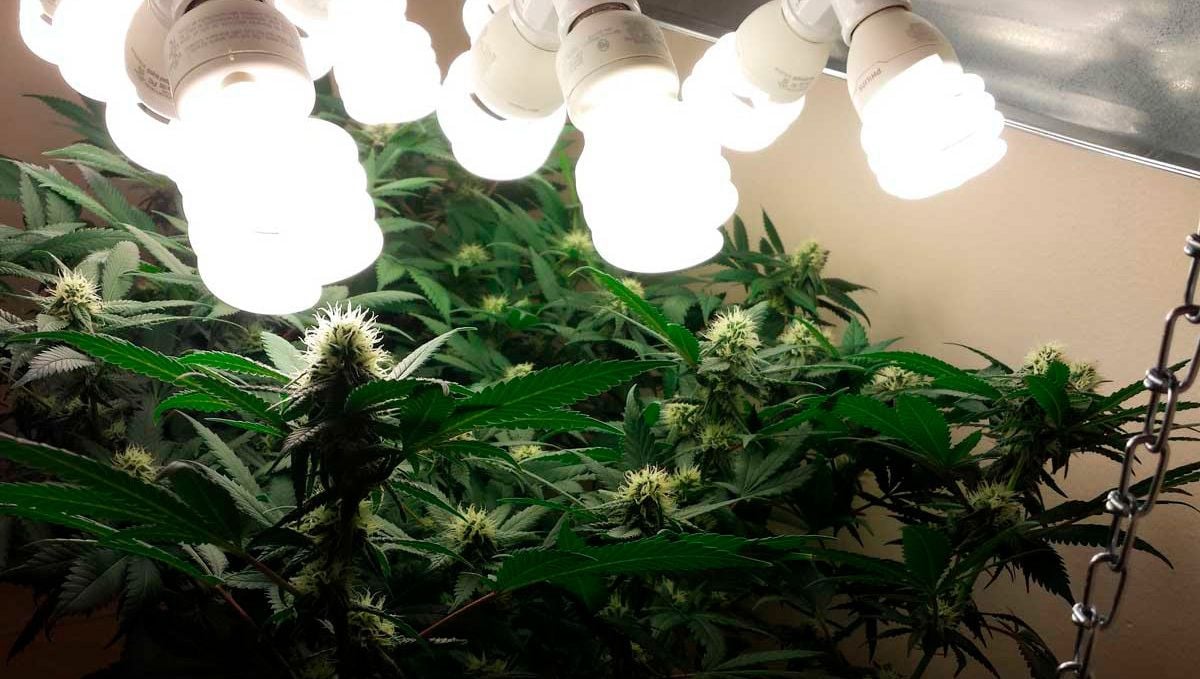
This reaction also creates UV rays that could quite possibly increase cannabinoid production in weed flowers. However, these bulbs feature an internal layer of fluorescent paint that filters out these wavelengths in the interest of consumer safety. Their only downside is that while each bulb has relatively low power consumption, you'll need several bulbs to provide enough light to grow ganja. Power consumption might reach over 400 watts to generate enough illumination.
T5
T5s are what you probably picture in your head when you hear the word fluorescent. These long tubes of electrically charged gas have been around since the 1930s. Cannabis responds better to the T5 light spectrum than CFL's, and they're powerful enough to grow a plant from seedling to harvest. They're a bit more conspicuous than CFLs, but it's not unheard of for people to have homes lit by T5 lights, especially in East Asia.
2. HID
HID bulbs blast out massive amounts of light, and you'll notice it in your plant's growth if you decide to use them. They utilize the perfect spectrum for cannabis cultivation, but they also generate large amounts of heat and use a great deal more electricity than other options.
Metal Halide
Rarely used for the length of a full grow, metal halide lights provide the ideal blue spectrum for vegging cannabis plants, but many growers switch to HPS come flowering.
HPS
After vegging under metal halide, growers will often switch to high-pressure sodium lights for flowering. In terms of electricity used per unit of energy for the cannabis plant, the MH/HPS combo is the best option. However, neither of these lights comes cheap, and while they may be efficient in relative terms, they still use a great deal of power in the process, and you'll see it on your electric bill. Because HPS bulbs put out so much light, they are often used when it comes to street and security lighting. How do they do this? Well, their tubes house a mixture of reactive gases and metal. Together, these substances create and emit a potent orange-white glow capable of lighting your cannabis grow space wall to wall.
3. LEDs
LEDs are the perfect low-power solution for growers with smaller tents and those growing with discretion in mind. Their low power usage means you'll barely see an uptick in your electricity bill, at least if you're only using one or two lights.
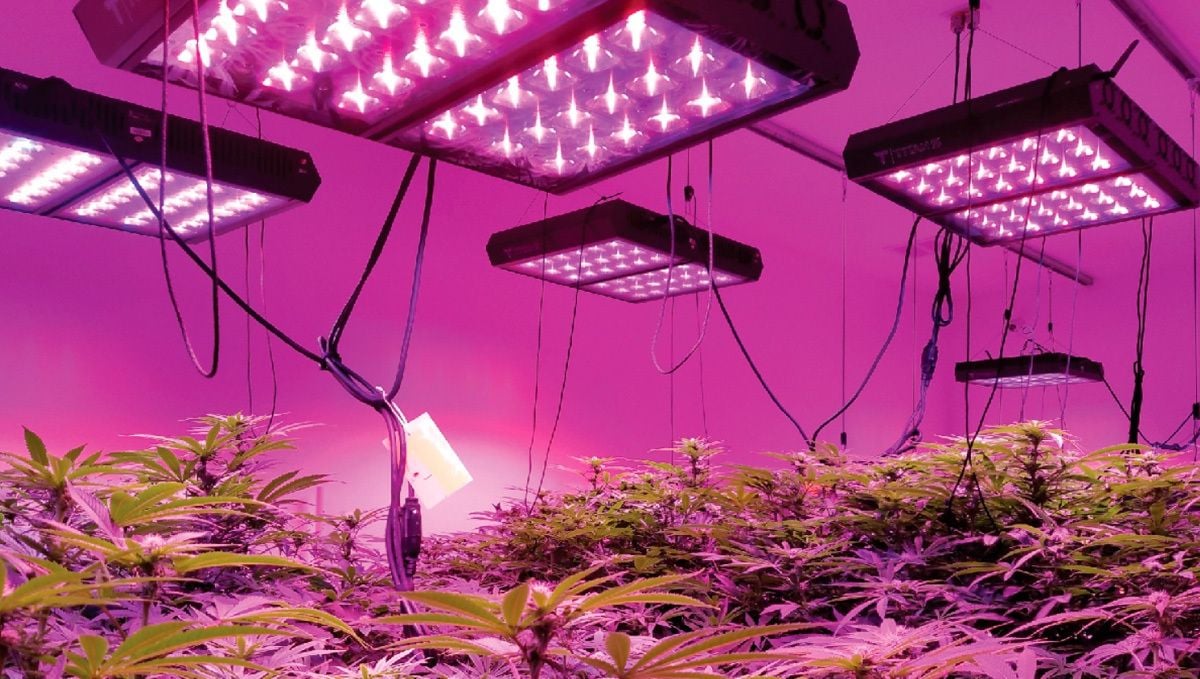
Traditional LEDs are giant arrays of bluish-purple lights that look like something from a science fiction movie. Their not as efficient as HID bulbs, but their low power consumption more than makes up for this fact. The biggest downside is that the purple light wreaks havoc on cameras, meaning you'll have to turn them off to get beautiful pictures of your hard work.
COBs
Chip on Board lights are tiny LEDs that put out an intense white light. A single 100w cob light is enough to power a small grow tent by itself and will only run you $100. If you're looking to grow on the cheap, COBs are even better than CFLs regarding power consumption and just slightly more expensive at retail.
4. How About the Best Lighting Schedule For Autos?
So we have laid out all the lighting options, but how about the best lighting schedule? If you have made it to this post then you probably already know about possibly the biggest advantage of growing autos, and the reason they are so popular with both novice and experienced growers…Normal photoperiod cannabis plants need to be under specific lighting conditions for the different stages of growth - vegging plants need at least 18 hours of light per day, and that switches to 12 hours per day when you want your plants to go into the flowering growth stage. This can work in your favor depending on how you want to run your crop, but autos work in a different way.
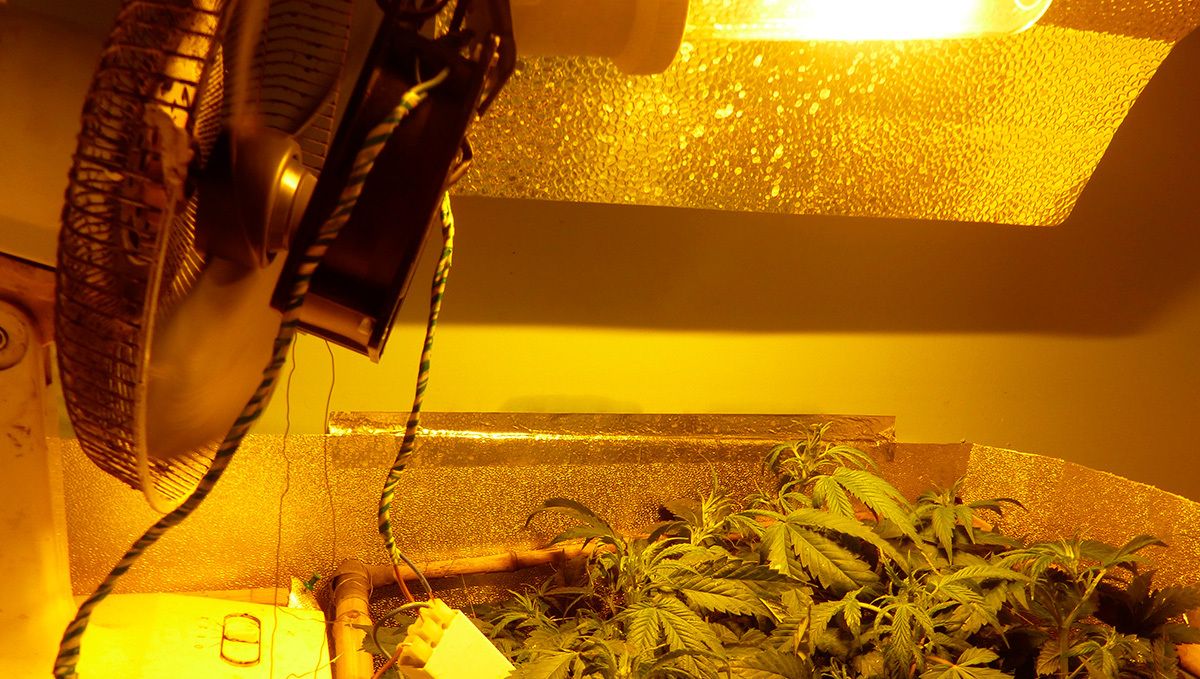
Autoflowering strains, as the name may suggest, will automatically switch to the flowering growth stage no matter the lighting conditions. But that begs the question - what lighting schedule works best for autos? What a loaded question this is, and one with a bunch of answers depending on who you ask. The main contenders are 18/6, 20/4, and 24/0 (that's light /dark). And during our years of experimenting, we have had success with all three options, but for the most part, we usually recommend 18/6. The 20/4 regime also seems to work great, and while 24/0 can offer great results for certain cultivars it can also cause unnecessary strain and cause a reduction in yield size. So, as a definitive answer, we think that the 18/6 lighting schedule works best for the vast majority of autoflowering strains.
5. What's Best For You?
That's a quick summary of your options, so what's the Best Lighting? It depends on what you value.
- If you want to save on start-up costs: Four to six CFL bulbs are your cheapest option, but you'll pay for it in power consumption later.
- If you want to save on electricity: A 100-watt cob light will use the same amount of energy as a single old-school incandescent bulb would have. If you don't want to see your energy costs increase, COBs are your best option.
- If you want the largest yield: For yield, HID can't be beaten. While you'll pay a pretty penny to procure and run them, they're the only option that can come close to competing with the sun. HIDs will produce more grams of cannabis produced per watt of electricity used than any other option.








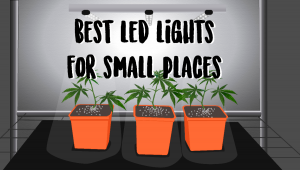
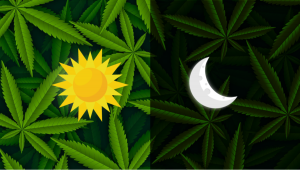

Comments